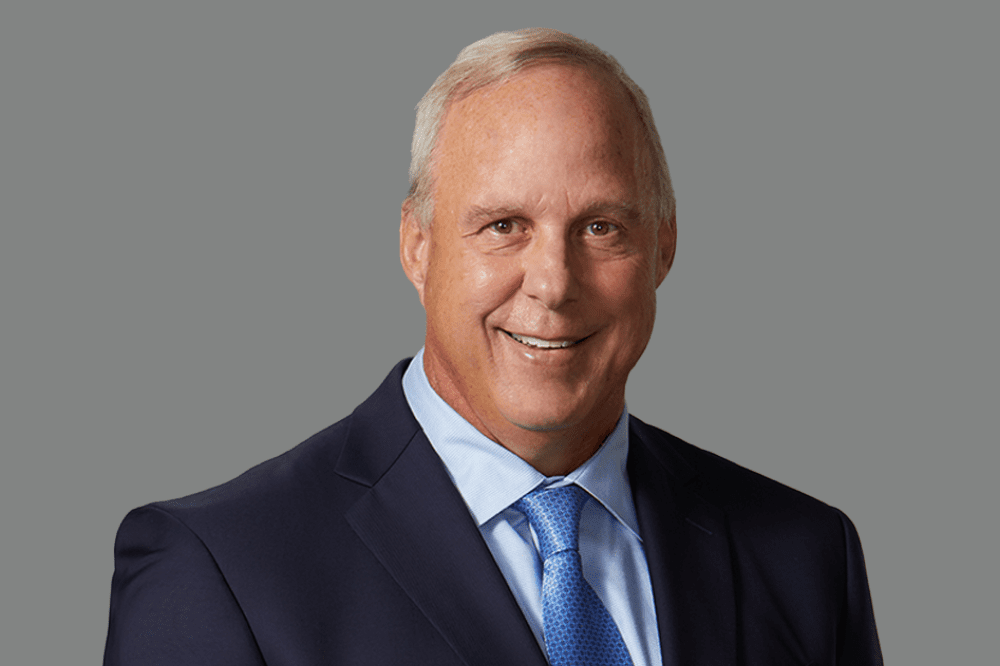"We don’t follow the Jack Welch rule" – Fortegra CEO

Kahlbaugh was referring to former CEO and executive chairman of General Electric, Jack Welch, who Fortune named “manager of the [last] century”.
Welch, who stepped away from General Electric in 2001 and died in 2020 aged 84, advocated for regularly cutting the bottom performing 10% of an organization’s workforce.
Nicknamed “Neutron Jack” by some, Welch made upwards of 100,000 layoffs during his first few years leading General Electric, according to reports.
The “business superstar”, as he has been called by the New York Times, referred to underperformers as “C players” who he saw as more focused on procrastination than delivery.
“I don’t believe in that at all; I believe that, if you’re well suited for Fortegra, I want you to come work for me for your whole career. Work for the family,” Kahlbaugh said.
The insurance industry is grappling with natural catastrophes, looming reinsurance renewals, and a gloomy economic outlook, but for Kahlbaugh, its biggest challenge remains talent.
The industry may be much more dynamic today than insurance of yesteryear, but it has “not done a good job of communicating that”.
“We’ve done a poor job, as an industry, in attracting people – especially younger people – to insurance,” Kahlbaugh said.
“They think of it as the old Fuller Brush Box [associated with door-to-door sales in North America] and somebody’s walking around selling life insurance policies out of his briefcase – nobody wants to do that.”
In the US alone, nearly 400,000 insurance workers could be set to retire within the next few years, according to frequently cited data from the US Census Bureau.
“That’s going to be a tough one to swallow as an industry,” Kahlbaugh said. “And I think that’s by far our biggest challenge.”
Read more: What’s the answer to the insurance talent shortage?
Like all businesses, Fortegra has its own approach to talent, and it does not always follow prescribed norms.
Fortegra – like many of its peers – is investing heavily in technologies like artificial intelligence and data science, and this has added to the importance of attracting the right people.
“Over the long haul, the better underwriters just are better analysts, because they’re seeing those correlations of risk that others aren’t seeing,” Kahlbaugh said.
“Now, with machine learning, data science, artificial intelligence, we’re trying to program all that, we’re trying to unlock those hidden correlations that aren’t obvious to the professional actuaries or the professional underwriters.”
New technologies require enhanced skillsets, and it was in conversation with a professor at Columbia University who teaches data science that Kahlbaugh got a definitive answer on what the business should be looking for in terms of talent.
Read more: Talent is the ‘secret sauce’ to insurance’s makeover
“[I was told that] what I really should be looking for is someone with an economics background, an engineering background, a banking background, somebody who [worked previously in] private equity, for example, who has nothing to do with insurance, but they know how to solve a problem and they’ll keep digging in the data and looking around for those little gems of information that might unlock a secret for us that will help price risks more consistently,” Kahlbaugh said.
“If you can price risk more consistently, there is value to the insured in continuity and consistency and pricing – no one likes a cost to go up and down, up and down, up and down – it’s very difficult for most people to run a commercial enterprise when a healthy percentage of their fixed costs are very unpredictable.”
Insurance has its nuances, and the vocabulary can be challenging at first, but in Kahlbaugh’s view this should not put individuals who are able to be “critical thinkers” off.
“I’m a lawyer by training and education, so I’m not necessarily qualified for any of this,” Kahlbaugh, who joined Fortegra in 2003 as chief operating officer and is the former CEO and president of Volvo’s global insurance group, said.
“If you looked at my resume, you might wonder what the heck I’m doing here – but I do believe that it’s how you process data, how you process information, whether you’re a company, whether you’re an agency, whether you’re an individual, it’s that the analytical skills that separate one from the other.”





